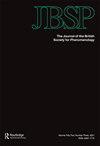Expanding the Active Mind
IF 1.1
2区 哲学
0 PHILOSOPHY
JOURNAL OF THE BRITISH SOCIETY FOR PHENOMENOLOGY
Pub Date : 2021-04-01
DOI:10.1080/00071773.2021.1905487
引用次数: 2
Abstract
ABSTRACT What I call the active mind approach revolves around the claim that what is “on” a person’s mind is in an important sense brought on and held on to through the agent’s self-conscious rational activity. In the first part, I state the gist of this perspective in a deliberately strong way in order to create a touchstone for critical discussion. In the second part, I engage with two categories of our mental lives that seem to speak against construing the mind as active. First, I discuss affectivity, in particular emotion, and show that emotional episodes are active engagements. Second, I discuss habitual action, and in particular those manifestations of habit which are initially opaque to the agent. In my responses to both objections, the notion of a practical self-understanding will play a central role. The result will be a qualified defence and expansion of the active mind position.拓展活跃的心智
我所称的活跃思维方法围绕着这样一种观点,即在一个人的思维中“出现”的东西,在重要意义上是通过行为人的自我意识理性活动产生并坚持下来的。在第一部分中,我特意以一种强烈的方式陈述了这一观点的要点,以便为批判性讨论创造一个试金石。在第二部分,我讨论了两类我们的精神生活,这两类似乎都反对将心灵解释为活跃的。首先,我讨论了情感,特别是情感,并表明情感事件是积极的参与。其次,我讨论习惯行为,特别是那些习惯的表现,最初是不透明的行为者。在我对这两种反对意见的回应中,实际自我理解的概念将发挥核心作用。其结果将是一个合格的防御和扩展积极的思想位置。
本文章由计算机程序翻译,如有差异,请以英文原文为准。
求助全文
约1分钟内获得全文
求助全文

 求助内容:
求助内容: 应助结果提醒方式:
应助结果提醒方式:


